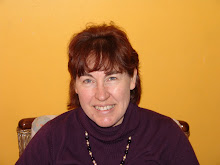After some irritation at being in yet another conversation which morphed into how "they" are doing everything wrong, how "they" are corrupt and so on, I started thinking about the processes involved. I, after some irritation, said I objected to the racist undertones and that people, all people did these things. Of course, everyone agreed!
But what is happening in these exchanges? By describing and decrying "their" corruption, we are defining ourselves as against corruption and moral. We recognise how wrong things are. We, and our friends sitting around the braai with us, are the good guys. We are also the victims. We can commiserate with one another and agree that we are moral, good and victimised. We are not part of the culture of corruption, we are not part of the community that does these things. So we get some sense of community from the interaction and have defined ourselves. However, in my experience, when people engage in this sort of behaviour, they often feel more despondent and disempowered. So why do it?
I think it happens because the alternatives are just too difficult.
I don't know everyone who was their last night, but I suspect that when the roles were reversed, and apartheid was in place, that none or very few of us, insisted that apartheid be dismantled and people be given equal status. I don't think anyone of us at the gathering risked our lives or our comfort levels so that right would be done.
All whites in South Africa have benefitted through our whiteness. But this is never acknowledged in these gatherings. Guilt for apartheid is never acknowledged. We never say that we are selfish and as long as we and children have security that the other man does not really matter.
If I had to talk to people at the gathering individually, the chances are that we would touch on what has been described as the fundamental attribution error. In other words, other people do what they do because on their personality; they are just bad. I do what I do because my circumstances are really difficult.
The problem with this sort of labelling of the other, is that it forms the basis of wars, genocide and discrimination against others. I am justified in vilifying these people; they are really bad - look at what they do.
The alternative to labelling groups of people is to know people. It is not to necessarily do good; charity is wonderful, but they are still the other. In order to counter this tendency, we need to spend time with someone and to actually know something about them, who they are, their stories, their aspirations. We also need to know this tendency in ourselves to label others and to resist it, to not take what appears to be the easy way out. We need to be honest with ourselves and we need to know how we have benefitted through apartheid, that we deserve the guilt we have, and that we complain because we are inconvenienced, not because we are moral, upstanding citizens.
Friday, November 6, 2009
Subscribe to:
Post Comments (Atom)

No comments:
Post a Comment